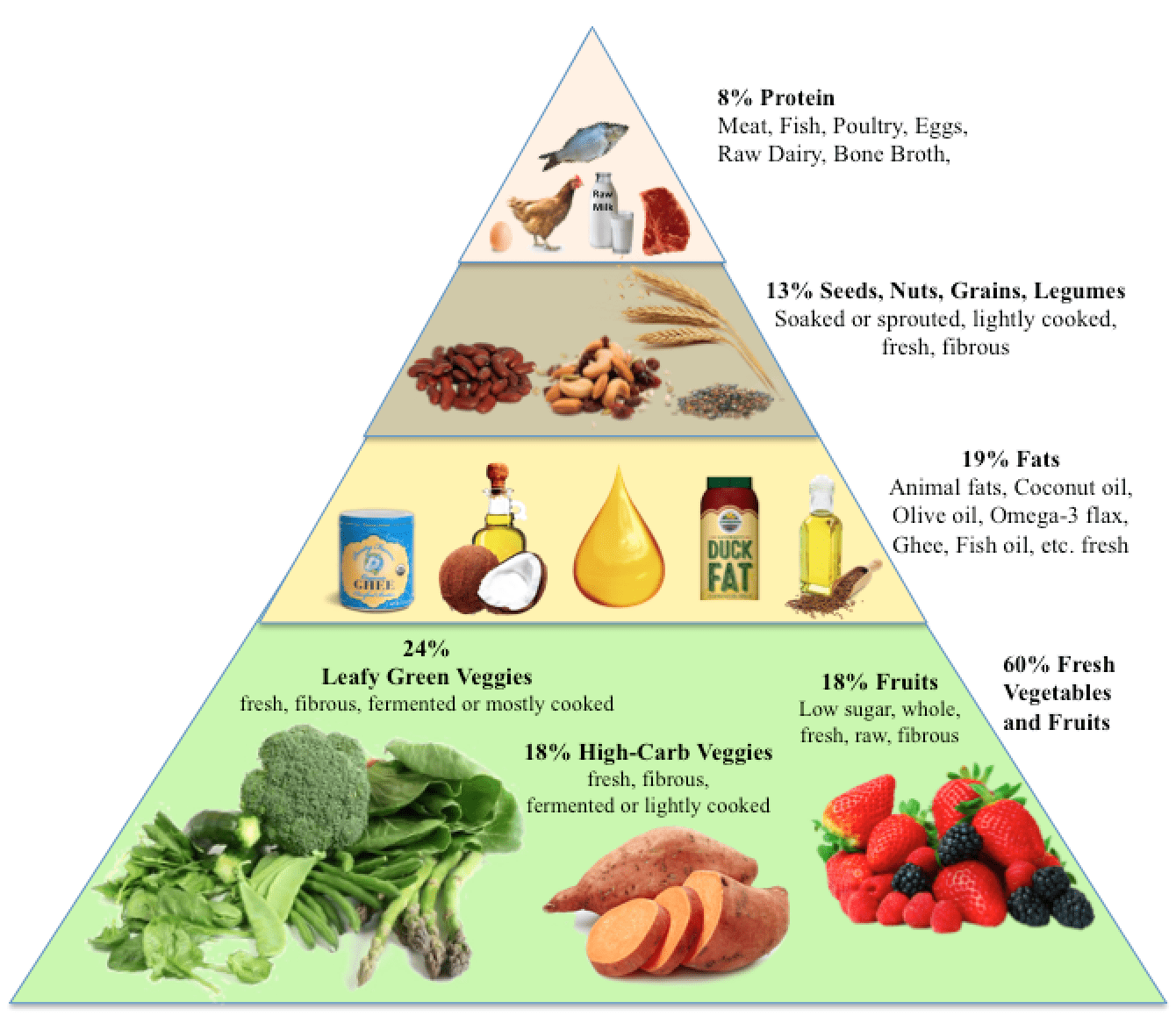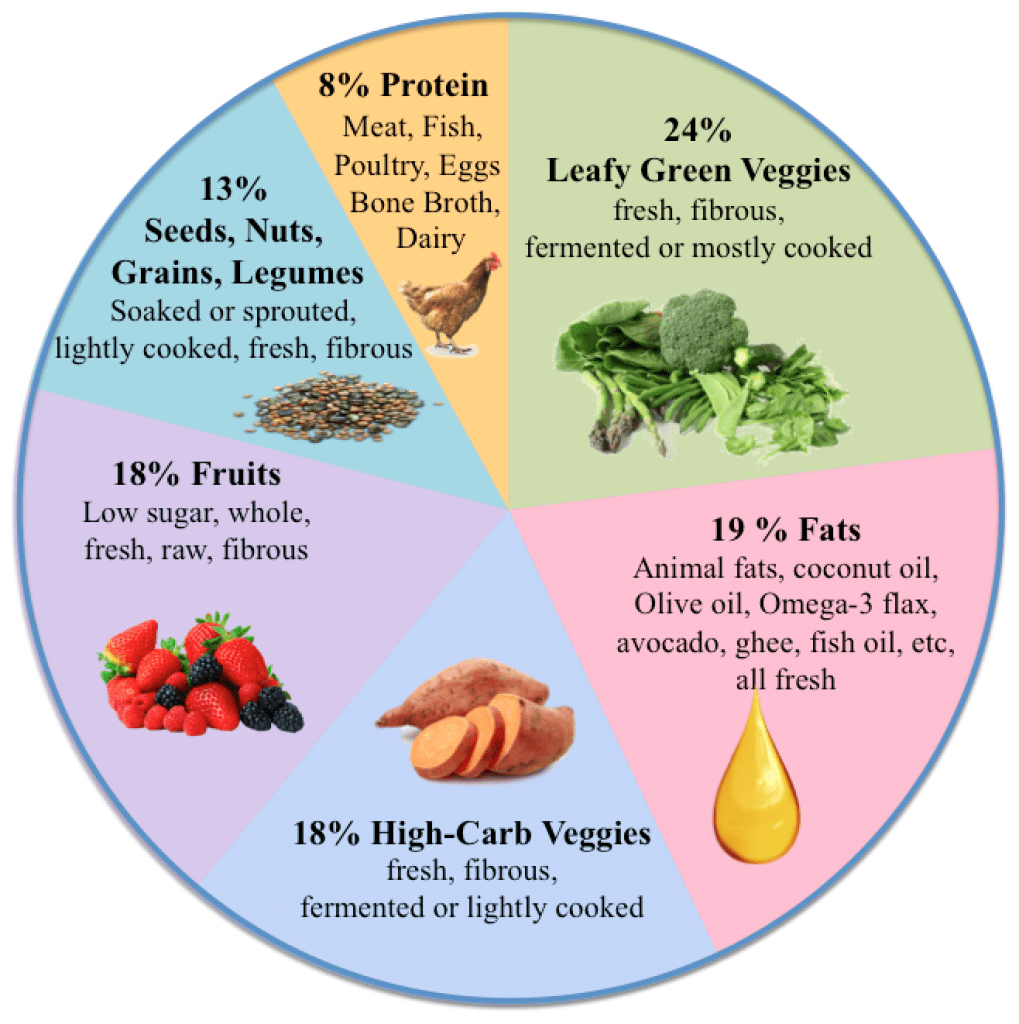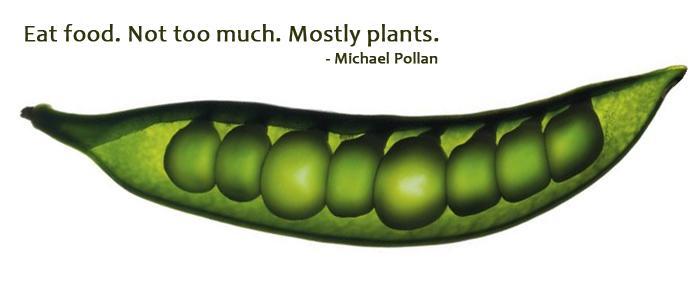 OK, will the best human diet please stand up?
OK, will the best human diet please stand up?
What general dietary guidelines are best for all humans? Or should we all just follow the current diet craze? How about the latest US Food Pyramid? Should we try the Paleo Diet? Or is it better to eat Vegetarian? Vegan is supposed to be cleaner, but is it? Going back to basics, what percentage of your food should be leafy green veggies? How much processed food is acceptable? How much meat should you eat, if any? Are there any foods everyone should avoid? While every person’s optimum diet is unique, yes, there are a few simple guidelines that work for most every-body.
Keep it Simple. As Michael Pollan says: “Eat real food, not too much, mostly plants.”
We’re all different.
In my clinical experience doing hundreds of Food and Nutrient Sensitivity Tests with electronically imprinted vials, I find that every one of my clients’ body chemistry is different. There are certain foods someone may not tolerate, and others that they need to consume more. Some people love the Paleo Diet, and interpret it like a general template to accommodate their own needs. Others feel better eating Vegetarian. When we find a diet that works for our own body, we sometimes want everybody else to follow it too. But remember, we’re all different. I believe it’s a mistake to try to apply rigidly specific dietary rules to everybody.
Having performed hundreds of Food and Nutrient Sensitivity Tests, I’ve observed some very surprising things. My job with a client is to listen to his or her body, to determine what’s truly best for each person without introducing my own opinions or beliefs. For example, some people do best with no animal products whatsoever. Their bodies have somehow adapted to a perfect balance on a Vegan diet. Other people require meat. Some clients have vitamin deficiencies, tree-nut allergies, amino acid imbalances, hypoglycemia, low digestive enzymes, hydration issues, and even parasites, which each require specific dietary attention.
Yet we have a lot in common.
Over time, I’ve also noticed that in spite of the obvious differences, in general our optimum diets have a great deal in common. There are a few things I observe that are the same across the board in every test. While the intensity of the intolerances may vary, I find in every single test that certain foods are NOT positive in an optimum diet. As an intuitive, I thought – what if I ask what is the optimum diet for ALL of humanity? As if everybody on the planet were right here in my clinic with the electronic vials? So that’s exactly what I asked, and these are the answers that came through. This is a general AVERAGE diet for humanity. It is not a rigidly specific diet or list of approved foods. There will be individual differences that you’ll need to refine to fit your specific needs. If you’re under a doctor’s care or following a special diet, or eliminating certain foods, please observe it until your doctor releases you or your condition is healed. Remember, I’m an intuitive. I can’t prove this diet scientifically. Take it for what it’s worth. I hope you find it useful.
Optimum Human Diet for Mostly Every-Body:
- 24% Leafy Green Veggies – Fresh, fibrous, fermented or mostly cooked.
- 19% Fats – Animal fats, Coconut oil, Olive oil, Omega-3 flax, avocado, ghee, fish oil, etc., all fresh.
- 18% High-Carb Veggies – Fresh, fibrous, fermented, or lightly cooked.
- 18% Fruits – Low sugar, whole, fresh, raw, fibrous.
- 13% Seeds, Nuts, Grains, Legumes – Soaked or sprouted, lightly cooked, fresh, fibrous.
- 8% Proteins – Meat, Fish, Poultry, Eggs, Raw Dairy, Bone Broth, fresh.
 Skip or Minimize These Non-Foods:
Skip or Minimize These Non-Foods:

- Low nutrient foods such as all sugars, honey, breads, crackers, chips, cookies, cake, donuts, sweets, energy bars, and extruded foods (such as processed breakfast cereals).
- All flours (even gluten-free) and all finely ground foods.
- Alcohol, Coffee, Tea, fruit juices, refined, highly heated, fried or processed foods.
- GMO foods, GMO-fed animal products, and foods treated with chemicals.
- Old or moldy foods (like peanuts) and foods low in life force energy.



